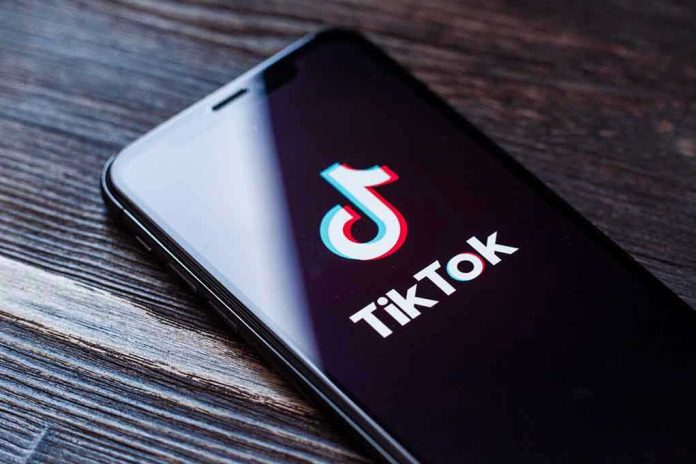
TikTok’s viral “flip camera” trend is turning non-consensual surveillance into entertainment, normalizing digital bullying while trampling on basic privacy rights that every American should expect in public spaces.
Story Highlights
- Trend involves filming unsuspecting individuals without consent for viral content
- Critics warn it normalizes surveillance culture and enables digital bullying
- TikTok has failed to implement specific policies targeting non-consensual filming
- Experts fear long-term erosion of privacy expectations in public spaces
Non-Consensual Filming Becomes Entertainment
The “flip camera” trend encourages TikTok users to abruptly turn their phone cameras onto strangers, acquaintances, or family members, capturing unguarded reactions without permission. Content creators prioritize viral engagement over basic human dignity, exploiting unsuspecting victims for social media clout.
This behavior represents a fundamental breakdown in respect for personal boundaries, transforming private moments into public spectacle. The trend’s popularity demonstrates how algorithmic incentives can override common decency and ethical considerations.
Platform Algorithms Reward Invasive Content
TikTok’s engagement-driven algorithm amplifies content that generates strong reactions, regardless of how those reactions were obtained. The platform’s recommendation system rewards creators who film without consent because surprise and shock drive higher engagement rates than ethical content.
This creates perverse incentives where violating someone’s privacy becomes a pathway to digital success. Content creators defend their actions as “harmless fun” while ignoring the psychological impact on their unwilling subjects.
Privacy Rights Under Digital Assault
Digital privacy experts warn this trend normalizes surveillance culture, conditioning Americans to accept constant filming as inevitable. The practice erodes reasonable expectations of privacy in public spaces, creating an environment where everyone must assume they’re being recorded without consent.
Legal protections remain inadequate, with most jurisdictions lacking clear laws addressing non-consensual filming for entertainment purposes. This represents a significant threat to individual liberty and personal autonomy in the digital age.
The trend particularly targets vulnerable individuals who lack the social media literacy to understand how their images might be distributed or weaponized online. Victims often discover their embarrassing moments have gone viral only after the damage is done, with limited recourse for removal or compensation.
This power imbalance between tech-savvy creators and unsuspecting subjects reflects broader concerns about digital exploitation in modern society.
Conservative Values Demand Digital Accountability
This trend undermines fundamental conservative principles of personal responsibility, respect for others, and protection of individual rights. Traditional family values emphasize treating others with dignity rather than exploiting them for entertainment, yet TikTok’s business model incentivizes the opposite behavior.
Parents should recognize this trend as part of a broader cultural shift toward normalized surveillance and digital harassment. The failure of tech platforms to enforce basic ethical standards demonstrates why government intervention may become necessary to protect citizens’ privacy rights.
Americans deserve the right to exist in public spaces without becoming unwilling participants in someone else’s content creation scheme.
The normalization of non-consensual filming represents another erosion of traditional social norms, replaced by a culture that prioritizes viral engagement over human decency and respect.
Sources:
“Flip The Camera” trend called out for bullying







